The 2016-17 APS Board
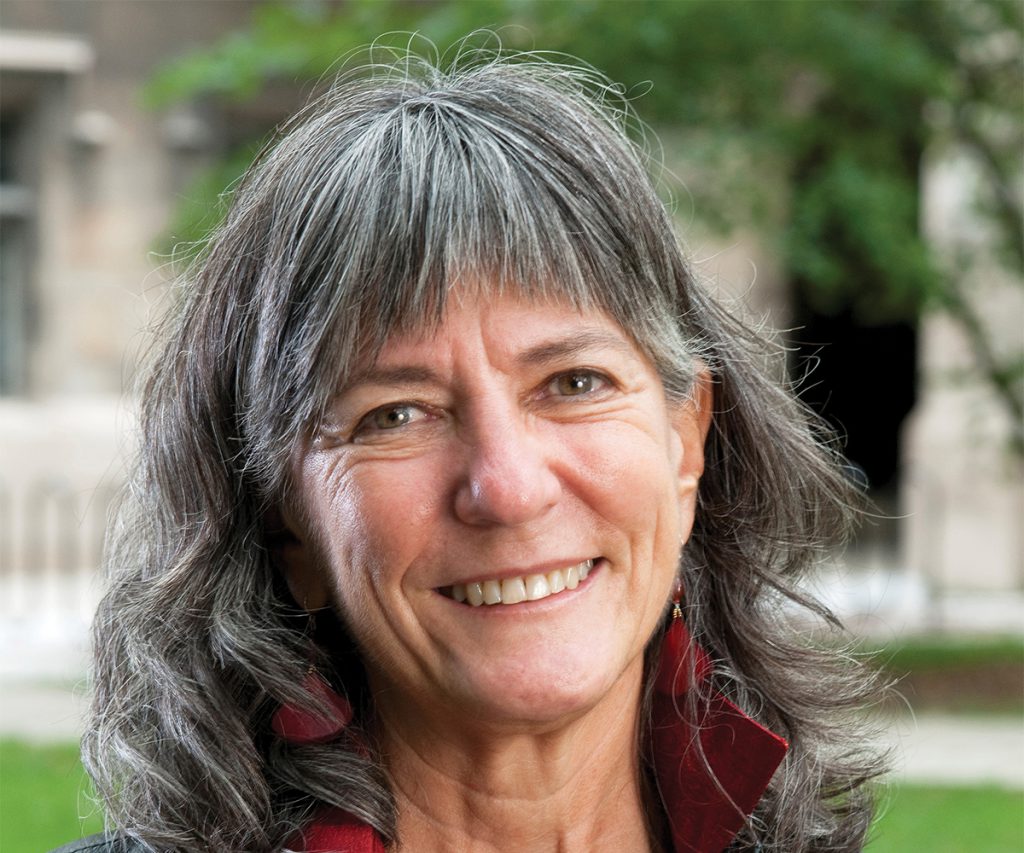
Every September, the Observer profiles leaders taking on new roles on the APS Board of Directors. For the 2016–2017 academic year, Susan Goldin-Meadow of the University of Chicago is the new APS President, while Suparna Rajaram of Stony Brook University joins the board as President-Elect. C. Randy Gallistel of Rutgers University becomes Immediate Past President. New Members-at-Large for the coming year include Deanna M. Barch of Washington University in St. Louis and Simine Vazire of the University of California, Davis. They join Members-at-Large Dorthe Berntsen of Aarhus Universitet, Denmark; Thomas H. Carr of Michigan State University; Michelle R. “Mikki” Hebl of Rice University; and Cindy M. Yee-Bradbury of the University of California, Los Angeles, along with Board Secretary Gün R. Semin, ISPA Instituto Universitário, Portugal, and Utrecht University, the Netherlands, and Treasurer Roberta L. Klatzky of Carnegie Mellon University. Ending their terms on the board are Past President Nancy Eisenberg of Arizona State University; Sandra Graham of the University of California, Los Angeles; and Annette D. Karmiloff-Smith of Birkbeck, University of London, United Kingdom.
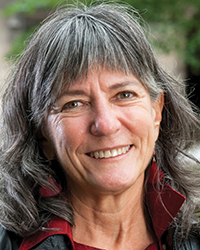 Susan Goldin-Meadow
Susan Goldin-Meadow
University of Chicago
President
2016–2017
Susan Goldin-Meadow, the Beardsley Ruml Distinguished Service Professor at the University of Chicago, studies language and gesture. She has observed language creation in children who do not have access to a usable model for language — deaf children whose hearing losses are so severe that they cannot learn the spoken language around them and whose hearing parents have not exposed them to a sign language. Despite their lack of linguistic input, these children develop gestures, called homesigns, which display many of the structures found in the spoken and signed systems developed by children learning language from more traditional language models. She has studied homesign in the United States, China, Turkey, and Nicaragua and found similarities across the systems despite cultural variation. The Nicaraguan variation is particularly interesting as homesign was the first step in a newly emerging sign language, Nicaraguan Sign Language, giving psychological scientists increased insight into where language comes from.
In another line of research, Goldin-Meadow studies the gestures that hearing people produce when they talk. She has identified situations in which gestures and speech don’t match, such as when a child explaining how to solve an arithmetic problem produces movements that convey a problem-solving strategy that is different from the strategy conveyed in her speech. Goldin-Meadow has shown that mismatches of this sort are a signal that the speaker is open to instruction in the problem at hand. Gestures not only reflect a speaker’s knowledge but also can play a role in affecting that knowledge: They play an active role in learning.
Goldin-Meadow’s many accolades include the APS William James Fellow Award, which she received at the 2015 APS Annual Convention. She also received a Fellowship from the Guggenheim Foundation and was a founding member of APS. She is a Fellow of the American Academy of Arts and Sciences and the American Association for the Advancement of Science (AAAS). She has served as a Member-at-Large on the APS Board of Directors and as Chair of the Section on Linguistics and Language Science and Chair of the Section on Psychology at AAAS. Goldin-Meadow’s books include The Resilience of Language: What Gesture Creation in Deaf Children Can Tell Us About How All Children Create Language; Hearing Gesture: How Our Hands Help Us Think; and Language in Mind: Advances in the Study of Language and Thought (edited with Dedre Gentner).
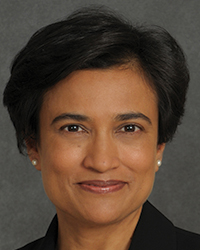 Suparna Rajaram
Suparna Rajaram
Stony Brook University
President-Elect
2016–2017
Suparna Rajaram is a psychological scientist in the area of human memory. Her research topics include the social transmission of memory, the differences between explicit and implicit memory, the cognitive and neural bases of amnesia, collaborative learning and remembering in young and older adults, and the impact of social scaffolding and the internet on learning.
Rajaram’s Social Memory & Cognition Lab studies the ways that social influences shape memory, learning, and the spread of false memories, social shaping of emotional memories, and the emergence of collective memory. In a study published recently in Psychological Science, Rajaram and her colleague Christian C. Luhmann used advanced computer modeling to demonstrate how one person’s individual memories can influence another person’s, directly and even indirectly, through a shared social network. In other, award-winning experimental work by Choi et al. (2014), Rajaram’s lab has reported that what people remember or forget depends on whether they interact with the same people in insular groups or with a diverse network of people.
Rajaram was an APS Board Member from 2012–2015 and a member of the APS Diversity Committee, and she chairs the APS Rising Stars Committee. She previously served as Chair of the Governing Board and Publications Committee of the Psychonomic Society. She also has served as an Associate Editor at Psychological Science, Psychological Bulletin, and Memory & Cognition, and on the editorial boards of several other journals. She is one of the founding organizers of Women in Cognitive Science, an international group founded in 2001 that is supported by the National Science Foundation (NSF) and dedicated to promoting the advancement of women in the cognitive sciences.
Rajaram is an elected fellow of the Society of Experimental Psychologists, AAAS, the Psychonomic Society, the Eastern Psychological Association, and the American Psychological Association. A past recipient of the FIRST Award from the National Institute of Mental Health (NIMH), Rajaram’s research has since been supported by the NIMH, the NSF, the Russell Sage Foundation, and Google.
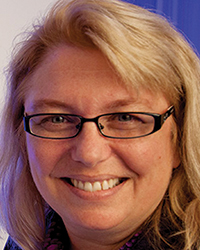 Deanna Barch
Deanna Barch
Washington University in St. Louis
APS Board Member
2016–2019
APS Fellow Deanna Barch is the Chair of the Department of Psychological & Brain Sciences and the Gregory B. Couch Professor of Psychiatry at Washington University in St. Louis. She is also the Codirector of the Cognitive Control & Psychopathology Laboratory. Her research aims to better understand the deficits in behavior and cognition in mental illnesses such as depression and schizophrenia by studying the interactions among emotion, cognition, and brain function. She also is interested in studying the bases and development of risk for these disorders to inform and improve preventative approaches. Her research methods utilize fMRI, structural MRI, cognitive neuroscience, and more to examine these psychopathologies. Barch also has served as the Editor in Chief of Cognitive, Affective, & Behavioral Neuroscience, as a member of the DSM–5 Revision Committee, and as an Associate Editor of the Journal of Abnormal Psychology and Biological Psychiatry.
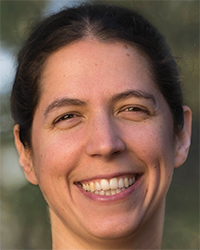 Simine Vazire
Simine Vazire
University of California, Davis
APS Board Member
2016–2019
Simine Vazire is an Associate Professor and the Director of the Personality and Self-Knowledge Lab at the University of California, Davis. Previously, Vazire was the Saul and Louise Rosenzweig Chair in Personality Science at Washington University in St. Louis and a Fellow at the Center for Advanced Study in the Behavioral Sciences at Stanford University. She is the Editor in Chief of Social Psychological and Personality Science and a senior editor at Collabra. She has served as an Associate Editor for Perspectives on Psychological Science, the Journal of Personality and Social Psychology, and the Journal of Research in Personality. Her research examines whether people have self-knowledge of how they behave and how others see them. She also studies how personality fluctuates across situations, how personality and social relationships influence well-being, and how we can improve the reproducibility of psychological science.





APS regularly opens certain online articles for discussion on our website. Effective February 2021, you must be a logged-in APS member to post comments. By posting a comment, you agree to our Community Guidelines and the display of your profile information, including your name and affiliation. Any opinions, findings, conclusions, or recommendations present in article comments are those of the writers and do not necessarily reflect the views of APS or the article’s author. For more information, please see our Community Guidelines.
Please login with your APS account to comment.